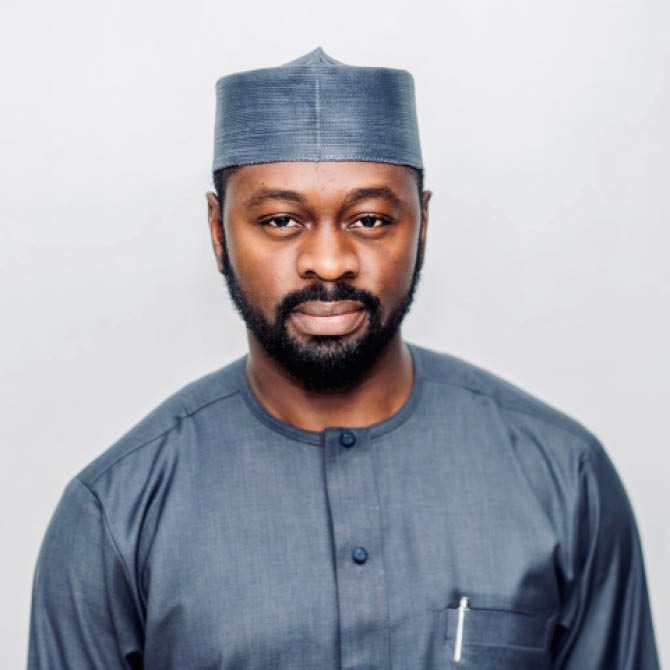The Chief Executive Officer (CEO) of ABS Blueprint Consortium, Alhaji Mohammed Yamusa Suleiman, in an interview with Daily Trust, says his company will use innovative and modern techniques in constructing the Nasarawa Technology Village, a novel mix-use development, in Karu Local Government Area of Nasarawa State. He also speaks about the company’s smart and eco-friendly high-end properties in Abuja.
How many flagship projects has ABS Blueprint executed so far?
ABS has embarked on a number of private and high-end projects. We just concluded a number of luxury apartments at the Diplomatic Zone, Abuja, they have been commissioned and are now operational. We have 32 units of various classes of luxury apartments – one, two and three-bedroom – nicely executed and furnished.
In Asokoro, we have a luxury estate of terraced houses and a few stand-alone villas. In Asokoro Extension, we have a number of stand-alone villas and mini estates of terraced houses; all in one compound.
In Maitama and Wuse 11, we have done various stand-alone villas and estates, because our target niche is high-end real estates.
In Life Camp, we have luxury apartments that are fully operational. We have also done a few other high-end projects like the mixed-use development in the Central Area; that’s apartments and offices. It is a twin eight-storey. It’s one of our iconic projects.
And with our consortium partners, Modern Shelter, we have large scale signature housing estates of various house types: apartments, terraces and villas, at strategic locations in Katampe Extension, Jahi, Gwarimpa, Mabushi and Galadimawa.
We live in a world where climate change and technology impact everything. How have these two elements affected the way you design and construct your properties?
We are embarking on projects at Diplomatic Zone and Life Camp and we intend to incorporate smart and eco-friendly aspects into our buildings. Smart in the sense that we will build homes that operate efficiently through smart devices for access and energy control. We have also incorporated eco-friendly elements in our buildings. We have solar and smart features combined in one. We have built-in designs like the water heater system. It will be through solar. A good amount of the external and security lighting is solar, and is smart because it is movement-activated. So it will help energy conservation and efficient management of energy. These are just bits of the elements that have to do with eco-friendly and smart technology we are currently incorporating in our buildings, and they will certainly have a way of reducing carbon emission in our environments.
You recently launched the Nasarawa Technology Village; what is the project all about?
The Nasarawa Technology Village is a very interesting project that we are very passionate about because it is a fusion of a technology hub and a housing estate. The two have been fused to create an ecosystem that is technology driven. That ecosystem will create a mini tech-driven economy in Nasarawa State, and even across the country.
The tech hub will have a training facility where we will be able to train 2,000 students in software engineering every year. We have our partners, DECAGON, which will provide the training, and upon graduation, the students will be secured outsourced jobs all over the world; jobs that you can work remotely and get paid. These are high-paying jobs that you earn up to $3,000 dollars every month.
The hub will have office spaces that will be let out to local and international IT companies, and of course a hostel.
We also have other commercial areas that are all tech- driven to promote various areas of technology and skills that are technically related.
Then we will have a housing estate which will comprise blocks of one and two-bedroom flats on 10 hectares. We have an arrangement with the Family Homes Fund to fund this. We also have two and three-bedroom bungalows. The two-bedroom bungalows will be terraced while the three-bedroom will be detached. The entire community will be modern and efficient in the sense that one would be provided infrastructure and ancillary services. We have a nursery and a primary school, we have commercial areas, a police station and a fire station. There will be an independent power plant will power the entire Nasarawa Technology Village that would be built by our energy partners, and we will have the option of utilising LPG or LNG.
When is the completion period?
The project is a huge one. The total number of residential units is 1,962, and adding that to all the elements I earlier mentioned in the wider estate and the technology hub, you will see that it is a very large project on 67 hectares. So by our estimation, the project will take three years to complete. We intend to do this in phases. So instead of waiting to complete the entire project, as we move on, we intend to be very strategic in the way we implement. So all things being equal, with the methods we are going to use for construction, which are going to be modern and revolutionary, it will save a lot of time.
What are these modern and revolutionary methods that you are going to deploy?
There is a method we are discussing with one of the sub-contractors. It is an on-site institute cast method whereby we will have panels of entire walls. For instance, for the three-bedroom building, a company, Tricity International, will fabricate wall panels and within days those panels will be assembled. All we will do is pour the light concrete that will solidify the entire walls. So you can see how that will ensure speed. After that, the roofing and finishing will not take long. We anticipate it will take a shorter time than when you use traditional method of sandcrete blocks; laying them individually.

 Join Daily Trust WhatsApp Community For Quick Access To News and Happenings Around You.
Join Daily Trust WhatsApp Community For Quick Access To News and Happenings Around You.


